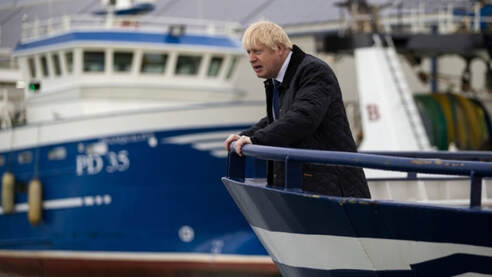
He went on to say, “I cannot think of any other industry that can provide positive environmental benefits, or as an economists would call them, environmental goods, in the way that farming can. What a huge opportunity that is for the farming industry. I hope that my farming colleagues and political leaders grasp the opportunity.”
These words, spoken some twelve months after the start of the Foot & Mouth epidemic, when the countryside had been closed to the public, are even more relevant today.
What I believe has changed is a recognition that sustainable mixed farming, including livestock and arable crops, support the environment and wildlife, and creates the countryside which is so appreciated by the public.
Covid 19 which shut down towns and cities, has, unlike F & M, opened up the countryside, to people who have never before ventured off the tarmac roads, who have found a world previously unknown to them.
I hope this new found knowledge and enjoyment of green fields, flora and fauna has also made them aware of the vital role agriculture plays in managing and protecting this valuable asset.
At last the UK can unilaterally manage sustainable food production through positive farming and fishing. We shall regain control of the countryside and our fishing waters, extending 200 nautical miles, without interference from Brussels.
The extraordinary outbursts from those opposing the Prime Minister’s efforts to steer the UK craftily away from the bear trap set by the EU, is shameful. It is abundantly clear that the Withdrawal Agreement as it stands would have worked if Brussels has stuck to its part of the bargain – a promise to conclude a swift and comprehensive free-trade accord: “It is the clear intent of both parties to develop ‘in good faith’, agreements giving effect to this relationship such that they come into force by the end of 2020.”
As Daniel Hannan points out in The Sunday Telegraph, ‘The Withdrawal Agreement was passed on the basis that a trade deal would be not only agreed in 2020 but fully implemented.’
As talks have progressed it is clear that Brussels is using Northern Ireland as leverage in its demands for control of British fisheries and technical standards. Also threatening to impose checks and tariffs between Great Britain and Northern Ireland. So what Boris is proposing to legislate for this week, is designed to prevent such barriers being applied maliciously.
Far from breaching the law, it in fact upholds one part of the Northern Ireland Protocol over later, potentially contradictory articles. The Withdrawal Agreement contains the following clause: “If the application of this protocol leads to serious economic, societal or environmental difficulties that are liable to persist, or to diversion of trade, the Union or the United Kingdom may unilaterally take appropriate safeguard measures.”
As Daniel reminds us, the UK made massive concessions – on financial payments as well as Ireland – in exchange for the promise of free trade. Britain is not asking for anything that the EU has not already offered other trading partners such as Canada.
If the EU will not honour their agreement ‘in good faith’, Boris should say, “Thanks, but no trade deal, no deal.” And walk away.

 RSS Feed
RSS Feed